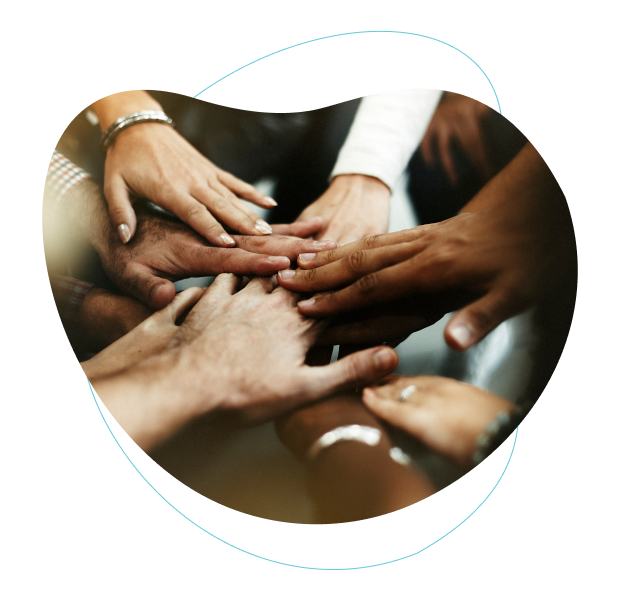Trauma Counselling
Trauma Counselling Services in Calgary & Airdrie
We offer trauma-informed and trauma specific therapies to help you move forward in life and not feel held back by past experiences.
Learn More About Our Services

What is Trauma?

Common Signs of Trauma
- Difficulty concentrating
- Impaired memory
- Nightmares, flashbacks, recurring thoughts, and/or intrusive memories
- Maladaptive coping mechanisms (i.e., with problem behaviours or substances)
- Low stress tolerance
- Increased fear, anxiety
- Dysfunctional emotional responses (over-responding or under-responding to situations and stimuli in your life)
- Reactivity (more irritable, tearful than usual)
- Difficulty engaging with life
- Hypervigilance (feeling like you are always on guard)
- Difficulty relaxing
- You have experienced an event or events that you define as traumatic either during this six-month period or before
- You feel these events have had a lasting and profound impact
- Self-harm
- Depression or suicidal ideation
If you or a loved one are experiencing any of these symptoms, it would be a good time to start exploring trauma counselling. These symptoms tend to appear only as mental health difficulties and possible Post-Traumatic Stress Disorder (PTSD) symptoms progress. While they may still be minimal and mild for you, getting proper support to prevent progression would be best.
Types of Trauma
There are three main types of trauma:
1) Acute. Acute trauma is a single traumatic event. An example is a motor vehicle accident, sexual abuse, or sexual assault.
2) Chronic.Chronic trauma is trauma that is repeated and prolonged, such as domestic abuse, violence and/or neglect, childhood abuse or trauma.
3) Complex.Complex trauma comes from exposure to events that are varied and multiple, often of an invasive and interpersonal nature.
Events impact everyone differently. There is no objective determiner of what is ‘traumatic.’ If something has happened in your life and you are impacted by it in an upsetting way, then you are a candidate for trauma therapy.


Our Trauma Treatment Approach
Trauma counselling involves:
- Realizing the prevalence of trauma.
- Recognizing how trauma affects all individuals.
- Responding by putting this knowledge into practice.
If you are experiencing ongoing symptoms that may be indicative of Post-Traumatic Stress Disorder (PTSD), an anxiety-related disorder or are just feeling stuck, we can help.
Our providers are each trained in different modalities that they can incorporate based on the individual’s needs. The therapies that may be used are:
1) Accelerated Resolution Therapy (known as ART)
2) EMDR (Eye Movement Desensitization Reprocessing)
3) Dialectical Behaviour Therapy (DBT)
4) Cognitive-Behavioral Therapy (CBT)
Take a minute to learn more about each of these therapies below.
Treatments We Offer
1) Accelerated Resolution Therapy (ART). ART is a treatment approach that combines aspects of eye movement from Eye Movement Desensitization and Reprocessing Therapy (EMDR therapy), including bilateral eye movement along with guided imagery and Gestalt Therapy techniques. ART will guide you in replacing the troublesome images and traumatic memories associated with PTSD with healthier ones of your choosing. As the name suggests, ART is a time-limited and brief intervention.Many clients find immense benefits after 1-3 sessions. ART can be used to treat PTSD, Obsessive-Compulsive Disorder (OCD), Eating Disorders, and Generalized Anxiety and Depressive Disorders.
2)Eye Movement Desnsitization and Reprocessing Therapy (EMDR). EMDR is a structured therapy that encourages the patient to focus briefly on the trauma memory while simultaneously experiencing bilateral stimulation (typically eye movements), which is associated with a reduction in the vividness and emotion associated with the trauma memories. Eye Movement Desensitization and Reprocessing (EMDR) therapy is an extensively researched, effective psychotherapy method proven to help people recover from trauma and PTSD symptoms. Ongoing research supports positive clinical outcomes showing EMDR therapy as a helpful treatment for disorders such as anxiety, depression, OCD, chronic pain, addictions, and other distressing life experiences. It can be effectively delivered virtually as well as in person.
3) Dialectical Behaviour Therapy (DBT). This therapy is particularly useful in supporting individuals learn how to navigate triggers, uncomfortable feelings, and any unhelpful behaviours, like self-harm, that may come out of these. Though originally this therapy was created for those with Borderline Personality Disorder, it is a helpful, skills-based modality that can be helpful alone or in combination with other therapies to support those with trauma.
4) Cognitive-Behavioral Therapy (CBT). This is another empirically validated treatment, in addition to EMDR, for dealing with trauma. CBT supports individuals in identifying and changing unhelpful thoughts that are leading to problematic feelings and behaviours. It is a talk-based therapy that also relies on out of session work.
What therapy(ies) you engage with is a collaborative process between you and your clinician. Once you have met with your clinician for 1-2 sessions, they will be able to provide you some recommendations on next steps.
Trauma Counselling at Sana Psychological involves supporting you to build up coping strategies, tools, skills, and appreciate your resilience so that you can function in your life however you desire. Treatment at Sana Psychological will primarily focus on the issues you are struggling with while incorporating an understanding that traumatic reactions are normal reactions to abnormal situations.
Treatment at Sana Psychological follows an active, engaged, supportive process with provided recommendations for actions you can take out of sessions to support yourself. We offer trauma counselling Airdrie & trauma counselling Calgary.


Support for Loved Ones
If desired or needed, trauma therapy Airdrie, Calgary, or virtually can incorporate sessions with concerned family members or friends who want to learn more about how to support you through your traumatic experiences best. They are welcome to come in for individual counselling sessions for their own support and/or do some joint appointments with the person engaged in the trauma counselling process.
If you are hoping someone you love and care about will access trauma counselling themselves, but they are not ready or willing, we recommend you consider support for yourself as a change in one family member can lead to a change in the rest of the unit.
Sana Psychological is here to support you and your loved ones in the ways that make sense and resonate for your situation.

Why Choose Sana Psychological?
Trauma therapy is approached from a hopeful, strengths-based stance using the modalities that team members have been trained on (see above as well as the About Us page for more information on this).
At Sana Psychological, we will work with you to identify goals, strengths, and tools that may be helpful throughout your trauma healing journey. Trauma counselling Airdrie, Calgary, or virtually can be engaged as a stand-alone service or incorporated into other work you are doing for yourself in other areas.
We are here to help you in the ways that make the most sense for you.
Session frequency will be determined collaboratively between you and your clinician. Typically, initial services may be more frequent as we engage in informal assessment. When we start treatment, sessions will be more spaced as progress and change happen. Other things may come up that you want to explore, which is great.
Counselling is about the therapeutic relationship and if you feel comfortable with your provider, this is a great place to explore any aspects of your life that are bothering you.
The initial 1-2 sessions will involve gathering as much background information as possible. Trauma Counselling Airdrie, Calgary, and virtually is about more than just your symptoms. It may involve exploring and developing relationships, self-care, grounding techniques, boundaries, dealing with physical pain and health, communication, and more.
Your trauma psychologist will discuss what Trauma Treatment they recommend for your situation and discuss with you what to expect during and after appointments. Follow-up appointments generally involve a check-in to see how you have been responding to the treatment, any immediate things that have come up that you may want to process and continuation of healing support.



Logistics
We have in person trauma counselling Airdrie and Calgary, and virtually* for those in Alberta, Yukon, and New Brunswick. *Sessions may be offered virtually, depending on the treatment type (some of these therapies are not recommended to be done virtually).
Cost, scheduling, and types of therapy available vary by the clinician. For more information on our providers, visit our About Us page.
Appointments can be scheduled online anytime. If you have questions about the services offered, do not hesitate to reach out. Email will be the quickest way to get in touch. We aim to respond to emails and phone calls within one business day. Each clinician’s direct email address is on the About page, or you can contact our general mailbox.
Sana Psychological is happy to support you in your healing journey.

Book An Appointment or Consultation Today
We are here to help. Appointments and free 15 minute consultations can be booked online anytime.


Frequently Asked Questions
A: What happens in trauma counselling depends on the type of treatment that is being provided. CBT and DBT therapy are talk-based and may involve exploring your thoughts and feelings, with recommendations for out of session practice and work provided. ART and EMDR can involve guided imagery, visualization, mindfulness, and eye movement activities paired with discussion. Interventions will always be discussed and can be changed at any time, as needed.
A: There is no ‘gold standard’ when it comes to trauma treatment as everyone responds differently to different therapies. EMDR and CBT have the most extensive research behind them and have been approved by the World Health Organization as suitable for trauma treatment.

